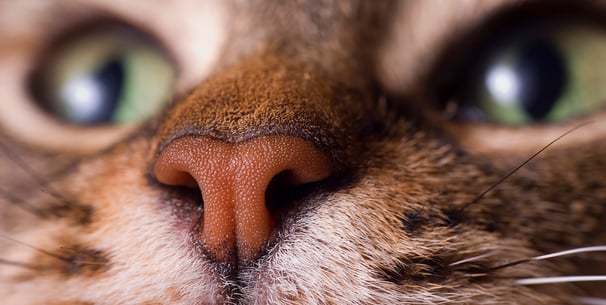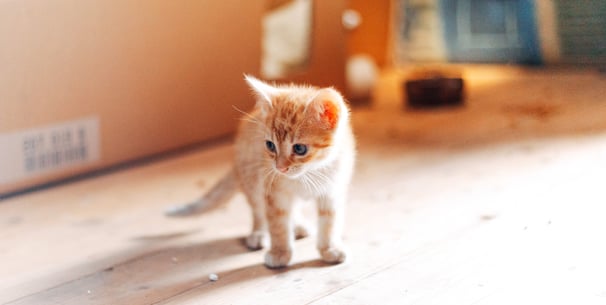How Long Are Cats Pregnant? - Pregnancy Length and What To Expect
Index:



Introduction
Are you curious about how long cats are pregnant? Do you want to become familiar with the signs of cat pregnancy and labour as well as how to care for your cat and kittens postpartum? If so, you’re in the right place.
In this article, we address all things feline to help you understand more about the pregnancy process in cats. So whether you’ve got a Tonkinese or a Tortoiseshell, buckle up and let’s go!
How long are cats pregnant?



Cats are typically pregnant for around an estimated 65 days (give or take). This equates to around a nine-week cat gestation period for our fluffy feline friends.
Cats of breeding age, pregnant cats, or cats who are nursing kittens are known as queens! A very suitable name even if we do say ourselves.
It’s not until week three in the pregnancy that cats start to show physical symptoms though behavioural symptoms can be noted in week two.
If your cat is currently pregnant, knowing what to expect can help you to provide a helping hand (or paw) when your cat needs it most.
Monitoring your cat during her pregnancy is vital. This means checking her condition, weight, and energy levels. Unlike human pregnancy, cat pregnancy moves along pretty quickly!
What are the signs of cat pregnancy?



The first sign of pregnancy in cats is a behavioural change, most notable once your cat’s heat cycle comes to an end and they stop searching for mates. This means no more late-night meow meows and howls for a partner.
Weight gain is also a classic telltale sign of feline pregnancy as your cat undergoes changes in her usual eating habits. During this time, female cats tend to become more territorial and search for places to nestle, ready to welcome their bundles of joy into the world.
Most vets can tell a cat is pregnant through physical signs such as a change in nipple appearance. If you can see your cat’s nipples poking out from beneath their fur and looking a bit swollen, it's a reliable indicator that they’re probably in the stage known as ‘pinking up’.
Pinking up tends to happen at around day 15 to 18 of the pregnancy and is the body’s way of getting ready to produce milk for hungry kittens.
Like female humans, cats can also experience morning sickness - so it’s important you give your pregnant queen lots of extra attention during this time, she clearly deserves it.
At around the five-week mark, you’ll start to notice your cat’s little tum starting to swell. The mother-to-be may also become a little clingy and seek out your affection more than usual. We prescribe lots of cuddles and extra treats.
When your cat is ready to give birth, she may become more reclusive and hide away ready for the big day. This is completely normal behaviour though it doesn't happen with every cat.
Restless behaviour tends to show at around one to two days before pregnancy. During this phase, your cat mum may look a bit uncomfortable and pace around, just like a human mum would.
Vocalising and meowing more than usual during the labour stage is completely normal too as your cat also experiences abdominal contractions - though please note: most human mums do not meow in labour.
Caring for a pregnant cat



When it comes to pregnancy, cats are very self-sufficient but this doesn’t mean your cat won’t appreciate your support and care.
When caring for a pregnant cat, we recommend pet owners seek professional advice from a veterinarian who can help you to help your cat.
During appointments with your vet, they will first confirm your cat’s pregnancy by gently feeling her abdomen, if this is inconclusive ultrasound technology can be used. They can also tell you how many furry bambinos to expect after around day 20.
Taking your cat to the vet is just one of the many things you can do to care for your expectant pet. There are also lots of adjustments you can make in your home to prepare your female cat for the next chapter of her life; motherhood.
Keeping your cat happy and healthy will help her pregnancy to run as smoothly as possible.
We firstly recommend keeping any litter boxes in your home as clean and comfortable as possible, which may mean cleaning them more often than you usually would. Whilst your cat can’t speak to say thank you - she would if she could, trust us.
Purchasing or making a ramp (or catwalk as we like to call it) for your cat to access her litter box is also a great way to ensure she isn’t straining herself or feeling any discomfort. Clapping and taking photographs of her walking out is an optional step.
Ensuring your cat has access to clean water at all times will help her to stay hydrated during her pregnancy.
It may also be worth chatting to your vet about changing your cat’s diet to specially formulated cat pregnancy food which will not only aid her digestion but also provide her kittens with the nutrients they need.
Once your cat starts to nest, take note of where she goes. Finding a special place, free from stress, can help your cat to relax and prepare herself for her big day! Awwww.
Once your cat has birthed and weaned her litter, your vet may recommend spaying as this will prevent any future pregnancy and stresses on your cat’s body.
Supporting your cat and kittens after the birth



The day has arrived, your cat has given birth to a beautiful litter of kittens! The best thing to do is to give your cat and her new babies lots of peace and quiet.
Make sure their bedding is clean and noise levels are low. This means stopping nosey family members from interrupting important bonding time.
After the birth, your mother cat is likely to be very tired and lethargic. Make sure to read her body language and stay away if necessary as she’ll be feeling very protective which is completely understandable.
Bring blankets, a hot water bottle, and maybe some tissues (just for yourself) - oh and tell your cat we said congratulations on her new litter of super cute kitties.
Conclusion
Cat pregnancy tends to last around 9 weeks which is the equivalent of between 63 to 67 days.
During this time you’ll notice several signs of pregnancy including behavioural and physical changes in your beloved feline - so it’s important to prepare yourself and your home for your purrfect new additions.
This means maintaining excellent hygiene standards and understanding that your cat may be feeling a bit more sensitive than usual.
Take the time to show her affection but understand she may want to take herself to a place of safety and solitude to prepare for her babies’ arrival alone - leave her be and remember, don’t anger a pregnant lady, it’s not cool.
Any responsible cat owner should make sure to keep in contact with their vet during their cat’s pregnancy so they can monitor the process. Being prepared and knowing what to expect can help the birthing process run as smoothly as possible.
After the birth, respect your cat and her kitties by not interfering with feeding and bonding if necessary. Keep your cats as warm and comfortable as possible and let the purr party begin.
For more helpful cat advice, our post about when cats stop growing is a good place to start. Here, you can learn about key health indicators affecting your cats growth.
Waggel Pet Insurance
Need more help? You're in luck if you're a Waggel Pet Insurance member. Along with our excellent coverage, we offer access to a 24/7 online vet to answer all your sticky questions, especially if you need grooming assistance.
Not a member? Why not get a quote now and cover your furry friend for a range of illnesses, all while enjoying our amazing perks and rewards.
Want more like this?
Get updates from us with helpful info, advice, answers to frequently asked questions and much more.
Index:
Related posts:
Get your quote
Along with our excellent coverage, we offer access to a 24/7 online vet to answer all your sticky questions.





